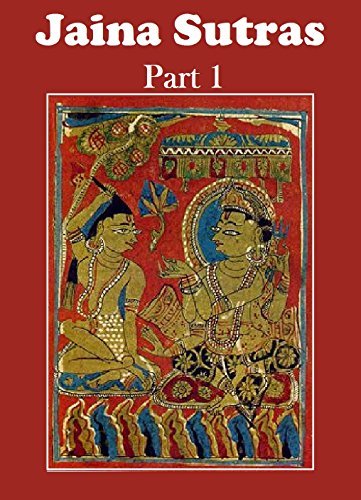Acaranga-sutra
by Hermann Jacobi | 1884 | 71,211 words | ISBN-10: 8120801237 | ISBN-13: 9788120801233
The English translation of the Acaranga Sutra, which represents the first the 12 Angas in Shevatambara Jainism. It is traditionally dated to the 5th-century BCE and consists of two parts containing lectures based on the teachings of Mahavira. Topics include: lifestyle of an ascetic: conduct, behavior, collecting alms, clothes, mode of walking and ...
Lecture 5, Lesson 2
[Fifth lecture (uddesaya, uddeśaka): Essence of the world]
Many do not live by injurious deeds against the world, they do not live by injurious deeds against these (living beings). Ceasing from them, making an end of them, he perceives: this is a favourable opportunity[1]; he who searches for[2] the right moment for this body (should never be careless). This is the road taught by the noble ones. (1)
When he has become zealous for the law, he should never be careless, knowing pain and pleasure in their various forms. Men act here on their own motives; it has been declared that they suffer for their own sins. Neither killing nor lying, he should (patiently) bear (all unpleasant) feelings when affected by them. That man is called a true monk. (2)
Those who are not given to sinful acts are (nevertheless) attacked by calamities; but then the steadfast will bear them. (He has to bear) them afterwards as (he has done) before (his conversion). (The body) is of a fragile, decaying nature, (it is) unstable, transient, uneternal, increasing and decreasing, of a changeable nature. Perceive this as its true character. For him who well understands this, who delights in the unique refuge[3], for the liberated and inactive there is no passage (from birth to birth). Thus I say. (3)
Many are attached to something in the world--be it little or much, small or great, sentient or nonsentient--they are attached to it (here) amongst these (householders). Thus some incur great danger. For him who contemplates the course of the world and does not acknowledge these attachments (there is no such danger). Knowing that that which is well understood is well practised, man! with thy eyes on the highest good, be victorious (in control). Among such men only is real Brahmanhood. Thus I say. (4)
I have heard this, and it is in my innermost heart; and the freedom from bonds is in your innermost heart. He who has ceased (to have worldly attachments), the houseless, suffers with patience a long time.
The careless stand outside, the careful lead a religious life.
Maintain rightly this state of a sage. Thus I say. (5)
Footnotes and references:
[1]:
For adopting the right conduct.
[2]:
Annesī = anveshin. I think that annesī may be an aorist of jñā, knew.
[3]:
Āyataṇa, i.e. the triad: right knowledge, right intuition, right conduct.
